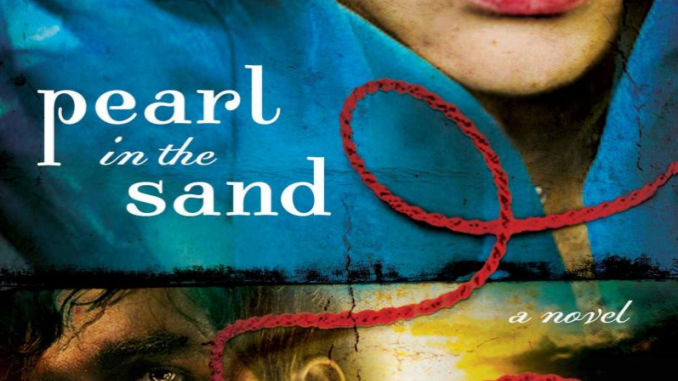
Also by this author: Daughter of Rome, Jewel of the Nile
Published by Moody Publishers on October 6, 2020
Genres: Fiction, Biblical, Christian, Romance
Buy on Amazon
Goodreads

Can a Canaanite harlot who made her living enticing men be a fitting wife for a leader of Israel? Shockingly, the Bible’s answer is yes.
This 10th anniversary edition of Pearl in the Sand includes new features that will invite you into the untold story of Rahab’s journey from lowly outcast to redeemed child of God. Rahab’s home is built into a wall, a wall that fortifies and protects the City of Jericho. However, other walls surround her too, walls of fear, rejection, and unworthiness… Years of pain and betrayal have wounded Rahab’s heart—she doubts whether her dreams of experiencing true love will ever come true…
A woman with a wrecked past—a man of success, of faith... of pride. A marriage only God would conceive! Through the heartaches of a stormy relationship, Rahab and Salmone learn the true source of one another’s worth and find healing in God.
I have read several novels centered around the story of Rahab, and each one has left me both convicted and filled with an intense warmth that can only come from God. Pearl in the Sand by Tessa Afshar is no exception. I read the 10th anniversary version of the novel. As I have not read the original edition, I cannot speak to any revisions that might have been made. The story itself, though, I trust to be the close to the same.
Rahab: the biblical savior of Hebrew spies who ventured into the land of Canaan. The rescuer of her family from the Hebrews’ swords. Rahab, the believer, who hung a scarlet cord from her window. The Bible does not cover her in detail, but she is important enough to be one of the few women listed by name in the genealogy of Jesus Christ. Tessa Afshar portrays this brave woman as a scarred creature who God wrapped in His love, faith, and forgiveness.
The first half of Tessa Afshar’s Pearl in the Sand felt disjointed to me. Choppy. It was as if the story did not include me; I was only a detached observer. Afshar glazed over Rahab’s past as if she wanted to rush to the romance element of the woman’s story. The sentences were short, and the structure too simple. Sentences quickly jumped forward in time. Afshar does not really break open Rahab’s heart besides her zeal for God. I wanted to know more of the character’s feelings before God brought down Jericho. Afshar did not express her anguish, discontent, or her shame. I only saw her fear of and respect of a powerful God, a God more powerful than any she had ever heard.
The last part, though, Afshar seemed more in her element. The words flowed from one to the next on the page. She presented the main two characters and their problems, and led them down a path of growth. Pearl in the Sand did not only center on a romance, although that was theme. With vivid imagery—almost like parables—Tessa Afshar revealed snippets of the character of God. At one point (the point where the title’s meaning is revealed), my heart smiled. Pearl in the Sand reminded me that God was so good. That I can be covered soot, yet He gives His beauty for my ashes. How others’ opinions do not determine my worth in Him. I may be black with sin. When He looks at me, though, He sees Christ’s red blood and the white cloak of His redemption.
I mentioned my conviction in the first paragraph of this review. Any time I read about Rahab, I feel that gut-wrenching discomfort that I have prostituted myself to other things. I am not a harlot who owns an inn, but I definitely have put the wrong things before God. I have my idols, my sins. In Pearl in the Sand, Tessa Afshar presents a Rahab who is entirely focused on her past faults. God, however, does not see those infirmities—He sees His fearfully and wonderfully made creation. Rahab begins a new life, and God blesses her with a husband and a son.
I wish the first half of Pearl in the Sand had been more like the second. The first half was too general, and it moved far too quickly when compared to the rest of the book. I knew so little about Rahab’s emotional and mental scars until someone pulled them out of her. For how much the book broke into characters’ inner feelings later on, the first half sorely lacked the same sincerity. I feel like Tessa Afshar missed an opportunity with Pearl in the Sand.
I liked Pearl in the Sand. It was a quick read with a satisfying conclusion. With how simplistic the first half was, though, when compared with the intense lessons in the second…I almost wish I had skipped right to the latter.
